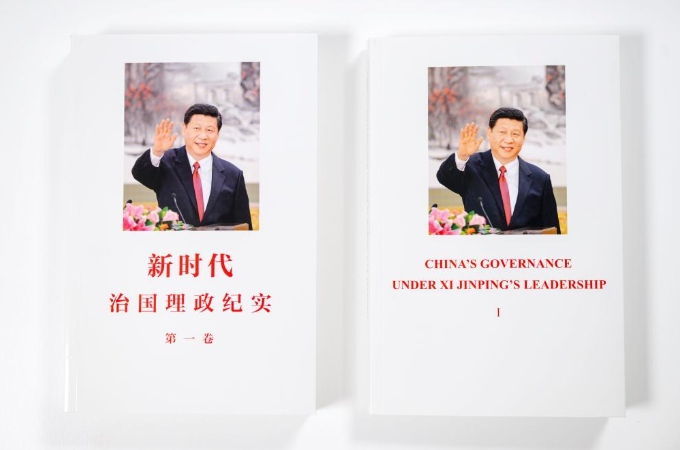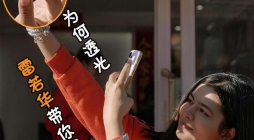China's traditional tea-making enters UNESCO cultural heritage list
Source: Xinhua | 2022-11-30 | Editor:Lexi
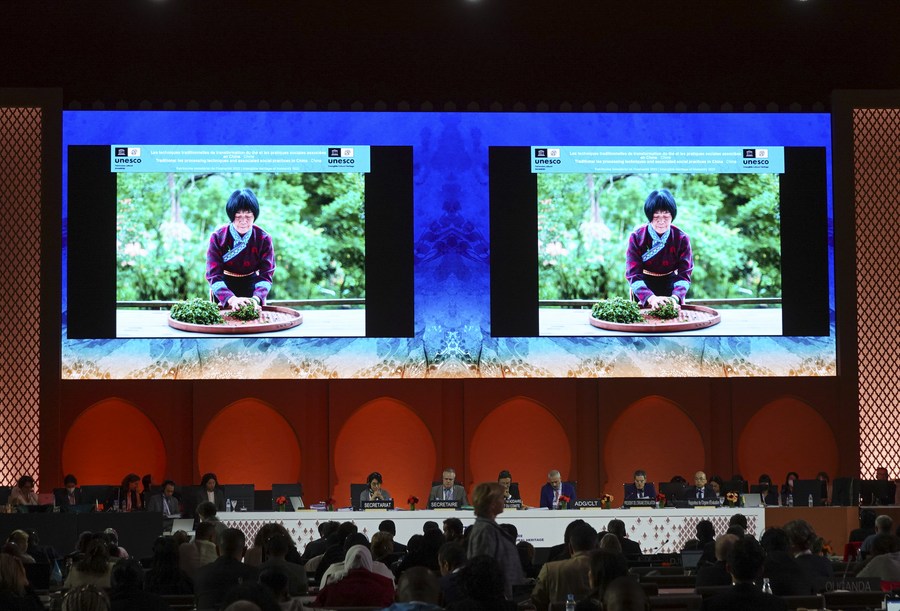
The item "Traditional tea processing techniques and associated social practices in China" is examined during the 17th session of the UNESCO Intergovernmental Committee for the Safeguarding of the Intangible Cultural Heritage in Rabat, Morocco, Nov. 29, 2022. (Xinhua/Xu Supei)
China's traditional tea-making was added on Tuesday to the intangible cultural heritage list of the United Nations Educational, Scientific, and Cultural Organization (UNESCO).
The item "Traditional tea processing techniques and associated social practices in China" passed the examination at the 17th session of the UNESCO Intergovernmental Committee for the Safeguarding of the Intangible Cultural Heritage ongoing here in the Moroccan capital.
China now has 43 items on the intangible cultural heritage list, continuing to be the most enlisted country in the world.
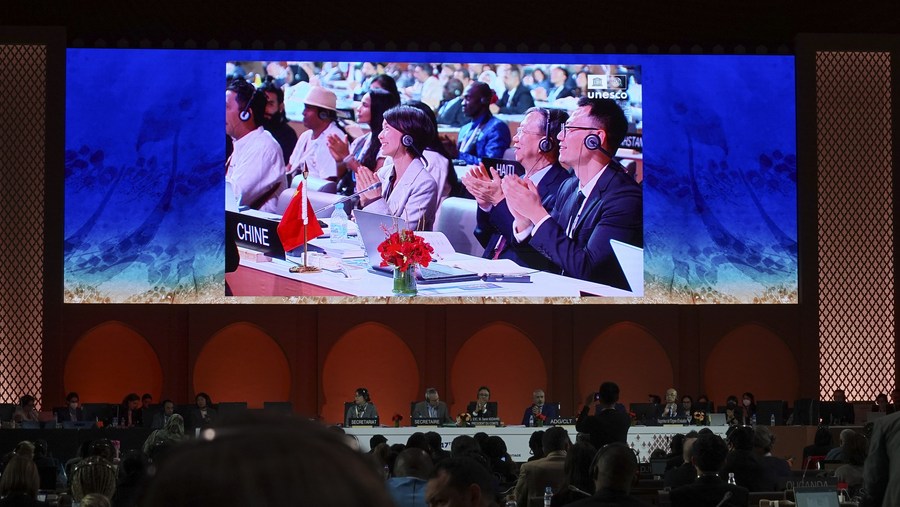
This photo taken on Nov. 29, 2022 shows a scene at the 17th session of the UNESCO Intergovernmental Committee for the Safeguarding of the Intangible Cultural Heritage in Rabat, Morocco. (Xinhua/Xu Supei)
Wang Yongjian, head of the Chinese delegation to the UNESCO session, told Xinhua that the inscription will make this cultural heritage more visible to the public and help promote the respect for cultural diversity and human creativity.
"We will apply for and promote more of the intangible cultural heritage projects with Chinese characteristics and showcasing Chinese spirit and wisdom, so as to better promote Chinese culture to go global," he added.
The traditional tea processing techniques and associated social practices in China consist of knowledge, skills, and practices concerning the management of tea plantations, picking of tea leaves, manual processing, drinking, and sharing of tea.

Fang Zhou (L) learns to make Wuyi rock tea, a type of oolong tea, from his mother at a workshop in Xingcun Township of the city of Wuyishan, southeast China's Fujian Province, May 10, 2020. (Xinhua/Wei Peiquan)
Since ancient times, Chinese people have been planting, picking, making and drinking tea. Tea producers have developed six categories of tea: green, yellow, dark, white, oolong and black teas. Together with reprocessed teas, such as flower-scented teas, there are over 2,000 tea products in China.
Tea is ubiquitous in Chinese people's daily life, as steeped or boiled tea is served in families, workplaces, tea houses, restaurants and temples, to name a few. It is also an important part of socialization and ceremonies such as weddings and sacrifices, UNESCO added.
The UNESCO session, which runs from Nov. 28 to Dec. 3., examines 46 items submitted by countries across the world for inscription on the Representative List of the Intangible Cultural Heritage of Humanity, four items for the List of Intangible Cultural Heritage in Need of Urgent Safeguarding, five items for the Register of Good Safeguarding Practices, and one International Assistance request.
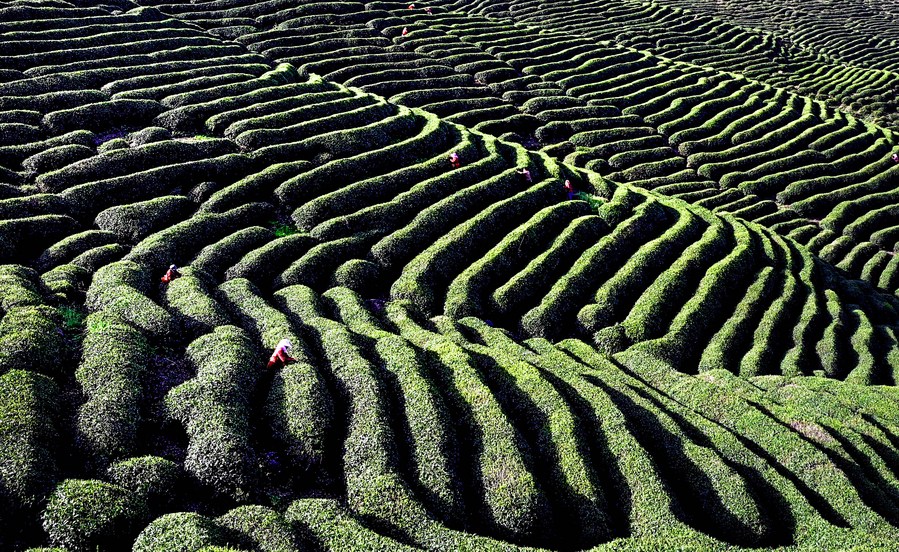
Villagers pick tea leaves at a tea garden in Mianxian County of Hanzhong City, northwest China's Shaanxi Province, April 19, 2022. (Xinhua/Tao Ming)
You May Like
-
Influential scientists on mainland growing
The number of highly influential scientists on the Chinese mainland has increased for a fifth consecutive year, signaling the nation's rising academic influence...
InKunming 2022-11-25 -
Investigation team set up for central China plant fire
The State Council, China's cabinet, has decided to set up an investigation team after a fire occurred at a plant in central China's Henan Province.
InKunming 2022-11-24 -
Chinese modernization delivers economic growth for the world
"China was the powerhouse of economic growth globally for the last 30 years. Now, this modernization program can help to deliver more economic growth for the wo...
InKunming 2022-11-24 -
Foreign bankers upbeat on China's finance market despite cha...
The Annual Conference of Financial Street Forum 2022 concluded in Beijing on Wednesday.
InKunming 2022-11-24 -
FDI likely to grow by double digits in 2022
The inflow of foreign direct investment is likely to grow by double digits this year, following the robust performance during the January-October period, which ...
InKunming 2022-11-18 -
Smaller cities help bolster urbanization
While China's megacities garner a great deal of attention, the country's up-and-coming midsize and smaller cities are growing and prospering thanks to helpful p...
InKunming 2022-11-18 -
China encourages foreign investment
China's latest move to open its market to foreign investment in the manufacturing sector will contribute to high — quality development, and ensure the stabilit...
InKunming 2022-11-18 -
7 Chinese cities accredited as int'l wetland cities
Twenty-five cities from 13 countries, notably seven from China, were accredited on Thursday by the Ramsar Convention as international wetland cities.
InKunming 2022-11-18 -
China launches Yaogan 34 remote sensing satellite
China successfully sent a new remote sensing satellite of the Yaogan 34 series into space from the Jiuquan Satellite Launch Center in Northwest China at 9:38 am...
InKunming 2022-11-15 -
CPC Faces: Music teacher dedicates herself to the frontline ...
Hua Yuchen is a music teacher at Ganghua Elementary School, Wuhan City, central China's Hubei Province. She has been working there for 10 years.
InKunming 2022-11-13
